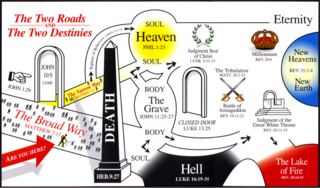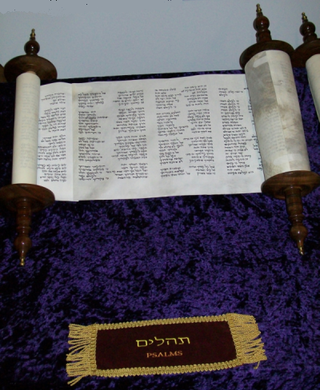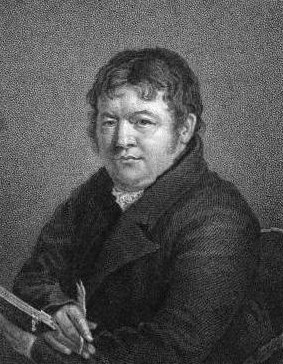Related Research Articles

John Milton was an English poet and intellectual. His 1667 epic poem Paradise Lost, written in blank verse and including over ten chapters, was written in a time of immense religious flux and political upheaval. It addressed the fall of man, including the temptation of Adam and Eve by the fallen angel Satan and God's expulsion of them from the Garden of Eden. Paradise Lost elevated Milton's reputation as one of history's greatest poets. He also served as a civil servant for the Commonwealth of England under its Council of State and later under Oliver Cromwell.
The Thirty-nine Articles of Religion, finalised in 1571, are the historically defining statements of doctrines and practices of the Church of England with respect to the controversies of the English Reformation. The Thirty-nine Articles form part of the Book of Common Prayer used by the Church of England, the U.S. Episcopal Church, and the Anglican Church in North America among other denominations in the worldwide Anglican Communion and Anglican Continuum.

A sacred language, holy language or liturgical language is any language that is cultivated and used primarily for religious reasons by people who speak another, primary language in their daily lives.
Smectymnuus was the nom de plume of a group of Puritan clergymen active in England in 1641. It comprised four leading English churchmen, and one Scottish minister. They went on to provide leadership for the anti-episcopal forces in the Church of England, continuing into the Westminster Assembly, where they also opposed the Independent movement.
Judgement of Martin Bucer by John Milton was published on 15 July 1644. The work consists mostly of Milton's translations of pro-divorce arguments from Martin Bucer's De Regno Christi. By finding support for his views among orthodox writers, Milton hoped to sway the members of Parliament Protestant ministers who had condemned him.

The Gospel Halls are a group of independent Christian assemblies throughout the world that fellowship with each other through a set of shared Biblical doctrines and practices. Theologically, they are evangelical and dispensational. They are a conservative strand of the Open Brethren movement and tend to only collaborate with other assemblies when there is doctrinal agreement.
The Reason of Church-Government Urged against Prelaty is an essay by English poet John Milton distributed as one of a series of religious pamphlets by the writer. Published in 1642, the political work details Milton's preference for a Presbyterian approach to the Church of England over approaches favoured by the episcopal organization of the time. Milton states that this form of worship stems from Hebrew scriptures. The essay was meant as a response to the beliefs of Bishop Joseph Hall and Archbishop James Ussher.
Of Reformation is a 1641 pamphlet by John Milton, and his debut in the public arena. Its full title is Of Reformation Touching Church-Discipline in England.
Defension Secunda was a 1654 political tract by John Milton, a sequel to his Defensio pro Populo Anglicano. It is a defence of the Parliamentary regime, then controlled by Oliver Cromwell; and also defense of his own reputation against a royalist tract published under the name Salmasius in 1652, and other criticism lodged against him.
Of Prelatical Episcopacy is a religious tract written by John Milton in either June or July 1641.
Apology for Smectymnuus, or An Apology for a Pamphlet, was published by John Milton in April 1642. It was the final of his antiprelatical tracts which criticize the structure of the Church of England.
A Treatise of Civil Power was published by John Milton in February 1659. The work argues over the definition and nature of heresy and free thought, and Milton tries to convince the new English Parliament to further his cause.
John Milton's antiprelatical tracts are a series of five political pamphlets that attack the episcopal form of church leadership.
The religious views of John Milton influenced many of his works focusing on the nature of religion and of the divine. He differed in important ways from the Calvinism with which he is associated, particularly concerning the doctrines of grace and predestination. The unusual nature of his own Protestant Christianity has been characterized as both Puritan and Independent.
Politics were an important part of John Milton's life. Milton enjoyed little wide-scale early success, either in prose or poetry, until the production of his later, controversial political works starting with The Tenure of Kings and Magistrates and Eikonoklastes.
Samuel Bolde (1649–1737) was an English clergyman and controversialist, a supporter of the arguments of John Locke for religious toleration.

Psalm 114 is the 114th psalm of the Book of Psalms. In the slightly different numbering system used in the Greek Septuagint version of the bible and in the Latin Vulgate, this psalm is Psalm 113.

The reign of Elizabeth I of England, from 1558 to 1603, saw the start of the Puritan movement in England, its clash with the authorities of the Church of England, and its temporarily effective suppression as a political movement in the 1590s by judicial means. This led to the further alienation of Anglicans and Puritans from one another in the 17th century during the reign of King James (1603–1625) and the reign of King Charles I (1625–1649), that eventually brought about the English Civil War (1642–1651), the brief rule of the Puritan Lord Protector of England Oliver Cromwell (1653–1658), the English Commonwealth (1649–1660), and as a result the political, religious, and civil liberty that is celebrated today in all English speaking countries.
Reformed worship is religious devotion to God as conducted by Reformed or Calvinistic Christians, including Presbyterians. Despite considerable local and national variation, public worship in most Reformed and Presbyterian churches is governed by the Regulative principle of worship.

Joseph Ivimey (1773–1834) was an English Particular Baptist minister and historian.
References
- Kranidas, Thomas. "Words, Words, Words, and the Word: Milton's Of Prelatical Episcopacy". Milton Studies 16 (1983): 153
- Milton, John. Complete Prose Works of John Milton Vol I ed. Don Wolfe. New Haven: Yale University Press, 1953.
- Wheeler, Elizabeth. "Early Political Prose" in A Companion to Milton. Ed. Thomas Corns. Oxford: Blackwell Publishing, 2003.
